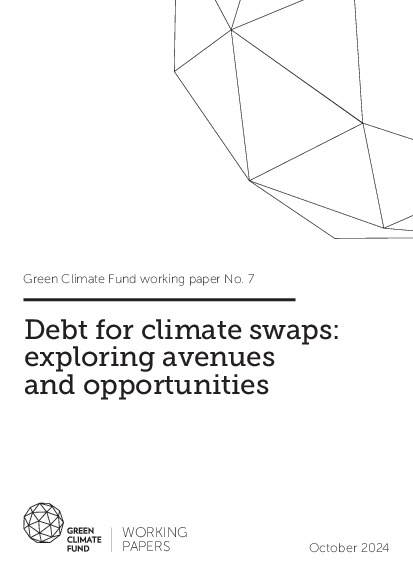Debt for climate swaps: exploring avenues and opportunities
The intersection of escalating public debt and the deepening climate crisis presents a dual challenge of paramount significance, particularly in Lower-Income Developing Countries and Small Island Developing States.
Debt-for-Climate Swaps (DFCS) are an agreement between a sovereign and its creditors that reallocates a portion of ongoing debt obligations toward investments in climate action. Such transactions provide opportunities for countries to enhance both fiscal stability and climate resilience, mobilising critical investment in areas such as renewable energy, urban infrastructure, sustainable agriculture and water security, forest conservation and restoration.
The Green Climate Fund (GCF) is uniquely positioned to enable and facilitate DFCS transactions, at both the policy design level and at individual project level. As a strategic partner in the global climate finance architecture, GCF can contribute as a convener, a direct funder, and as a provider of risk mitigation solutions that support the scaling of DFCS.
This report outlines different DFCS transaction structures, including bilateral and multipartite approaches, and assesses their application across varied country contexts. It explores the pathways in which GCF can support DFCS, mobilising critical climate-related investments while alleviating debt burdens. It includes a methodology for analysing the potential for DFCS transactions in different countries, based on an holistic, data-driven evaluation of environmental, debt, macroeconomic, and institutional parameters of different countries.
A series of case studies in different country examples are discussed, each with distinct transaction structures and objectives, illustrating the versatile applications of DFCS across different geographical and thematic areas, as well as avenues for GCF contribution.
